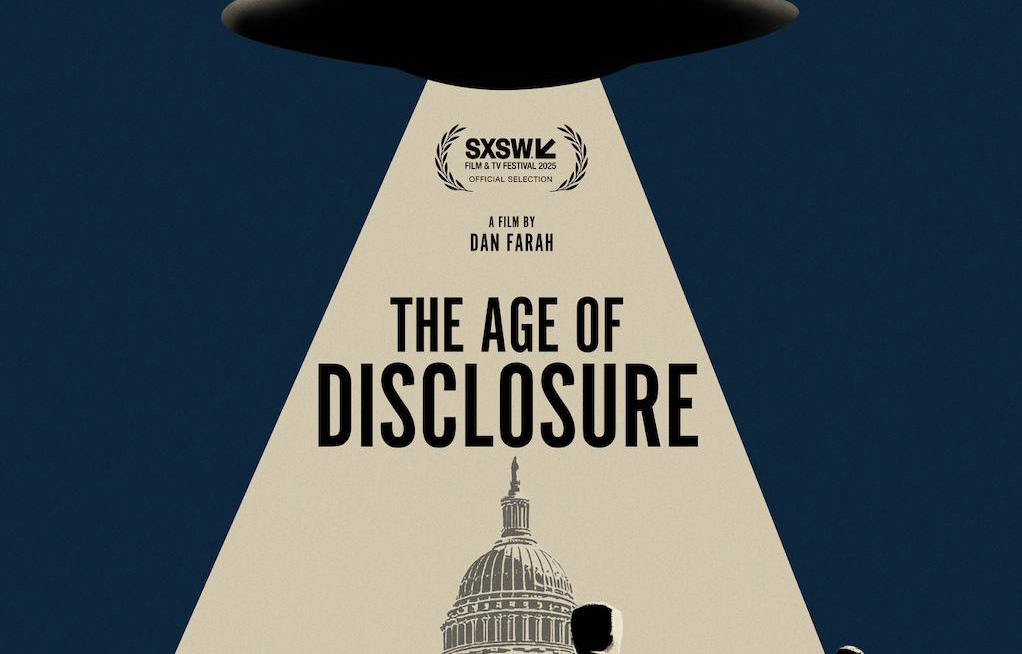
The trailer alone generated significant buzz—racking up 22 million views before release, described as a record-breaking number for documentary content. With high-profile talking heads including Secretary of State Marco Rubio, Senator Kirsten Gillibrand, and former Pentagon UAP Task Force director Jay Stratton, this looked set to be a landmark moment in the ongoing push for UAP disclosure.
But here's the thing: it comes with a £14.89 rental price tag (that's $19.99 in the States, or $24.99 to buy outright). And whilst the production values are undeniably slick—this is clearly a well-funded, professionally executed documentary—a chorus of critics and viewers alike have raised a rather awkward question: is there actually anything new here?
Michael Shermer, writing in Skeptic magazine, acknowledged that Farah has "lifted the genre to a higher level" but noted that "every fact, opinion, or anecdote in the film has been rehearsed elsewhere in recent years, and a good deal of the footage is from Congressional hearings, media reports, and stock interviews that have been circulating for years on CNN, Fox News, News Nation, and even the Wall Street Journal and the New York Times".
That's quite the damning assessment, isn't it? Essentially: lovely wrapping paper, but we've all seen what's inside the box before.
The Hollywood Reporter's Daniel Fienberg called it "a sensationalistic wolf in understated sheep's clothing" and noted that "almost nothing in The Age of Disclosure is 'new,' per se". He went on to describe it as essentially "a basic cable exploitation doc done up with a fancy gloss".
"almost nothing in The Age of Disclosure is 'new,' per se"
Even Jason Colavito observed that "by the time the film is over, the viewer has seen no evidence that is new, no stories that had not been told many times before".
Make no mistake—The Age of Disclosure is professionally assembled. The cinematography is crisp, the editing tight, and the gravitas of having actual senators and military officials on camera lends it an air of legitimacy that, say, some bloke's YouTube compilation simply cannot match.
The documentary has received a 7.1 out of 10 rating on IMDb from over 935 users, suggesting audiences who've watched it generally found it engaging. However, Metacritic assigned the film a score of 45 out of 100, based on five critics, indicating "mixed or average" reviews.
The division seems clear: if you're already following the UAP disclosure story—watching congressional hearings, reading the latest statements from David Grusch or Luis Elizondo, keeping tabs on what News Nation reports—then you're unlikely to learn anything groundbreaking here. As one Rotten Tomatoes reviewer succinctly put it: "If you live under a rock and have never heard UFOs, you might find this documentary informative. Otherwise, it's not worth $25 on Amazon Prime Video".
The documentary's pricing has sparked considerable debate on social media. One Reddit commenter sarcastically noted: "I have irrefutable information that will shake the very foundations of civilisation, science, economics, science, war, and religion. Money will now be irrelevant, but please be sure to spend $19.99 to RENT this".
Fair point, really. If this information is genuinely world-changing and humanity-altering, why is it behind a paywall that costs more than a cinema ticket?
Multiple commenters expressed skepticism about the documentary's content, with one lamenting, "I've heard all of this information from the trailer and clips already many times before". Another observer noted that "It's probably directed at people that don't follow UFOs, I doubt anyone in this sub frequently will learn anything new".
To be entirely fair to Farah, the documentary does serve a purpose. For someone completely new to the UAP topic—perhaps your mum who thinks it's all nonsense, or a mate who's vaguely heard about "those congressional hearings"—The Age of Disclosure packages everything into a digestible, authoritative-looking format. It's a greatest hits compilation, essentially.
The problem is you're paying premium prices for what amounts to a very well-edited aggregation of publicly available information. As Shermer pointed out, the film is "packaged and produced so well that naïve viewers may come away thinking that something strikingly original, shockingly new, and world-shaking is about to be loosed". But for those who've been paying attention? Not so much.
Look, nobody's denying that The Age of Disclosure is competently made. It is. The interviews are professionally conducted, the production values are high, and having that many government officials on record in one place certainly looks impressive.
But here's the uncomfortable truth: as The New York Times rather bluntly put it, "anyone who sits through its nearly two hours of unprovable claims is a chump of a different sort". That might be harsh, but the underlying point stands—if you're shelling out twenty quid for information you could have gleaned from congressional C-SPAN footage and News Nation segments, you're perhaps being taken for a bit of a ride.
The documentary will likely become free to watch on Prime Video in a few months' time, at which point it becomes a perfectly decent introduction to the topic for casual viewers. But right now, at that rental price? Unless you're utterly new to the subject, it's probably worth waiting.
For those already following the disclosure story, you'd be better off spending that twenty quid on a nice meal whilst watching some of the other excellent UAP documentaries available—many of which offer fresh perspectives and, crucially, won't cost you nearly as much. Same information, better value, and you might actually learn something genuinely new.
Rating: 6/10 — Professionally made, but not worth the premium price for anyone who's been following the UAP story. Wait for it to drop into the regular Prime Video library.
